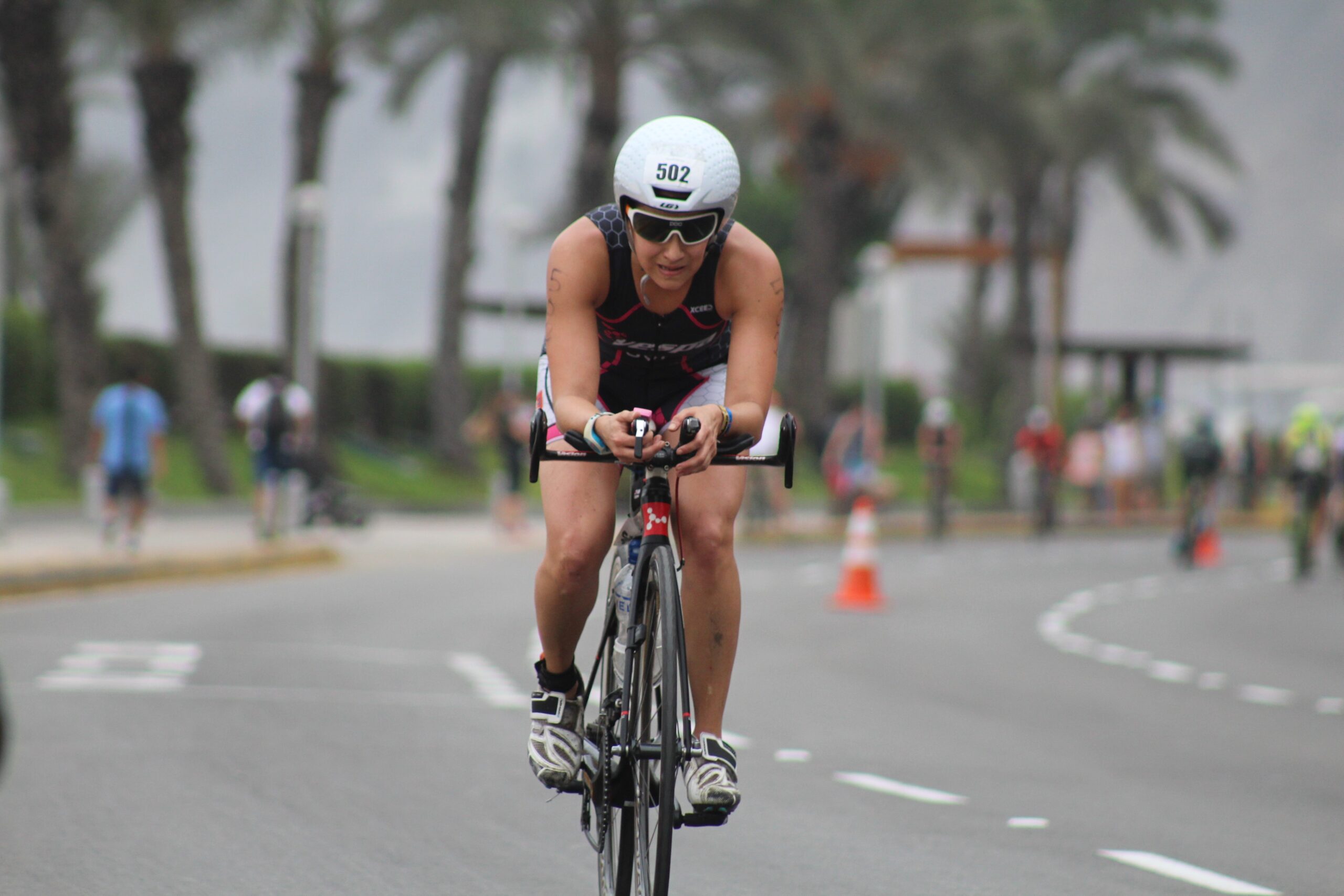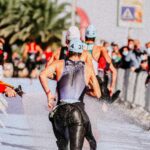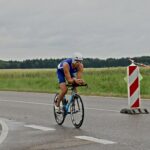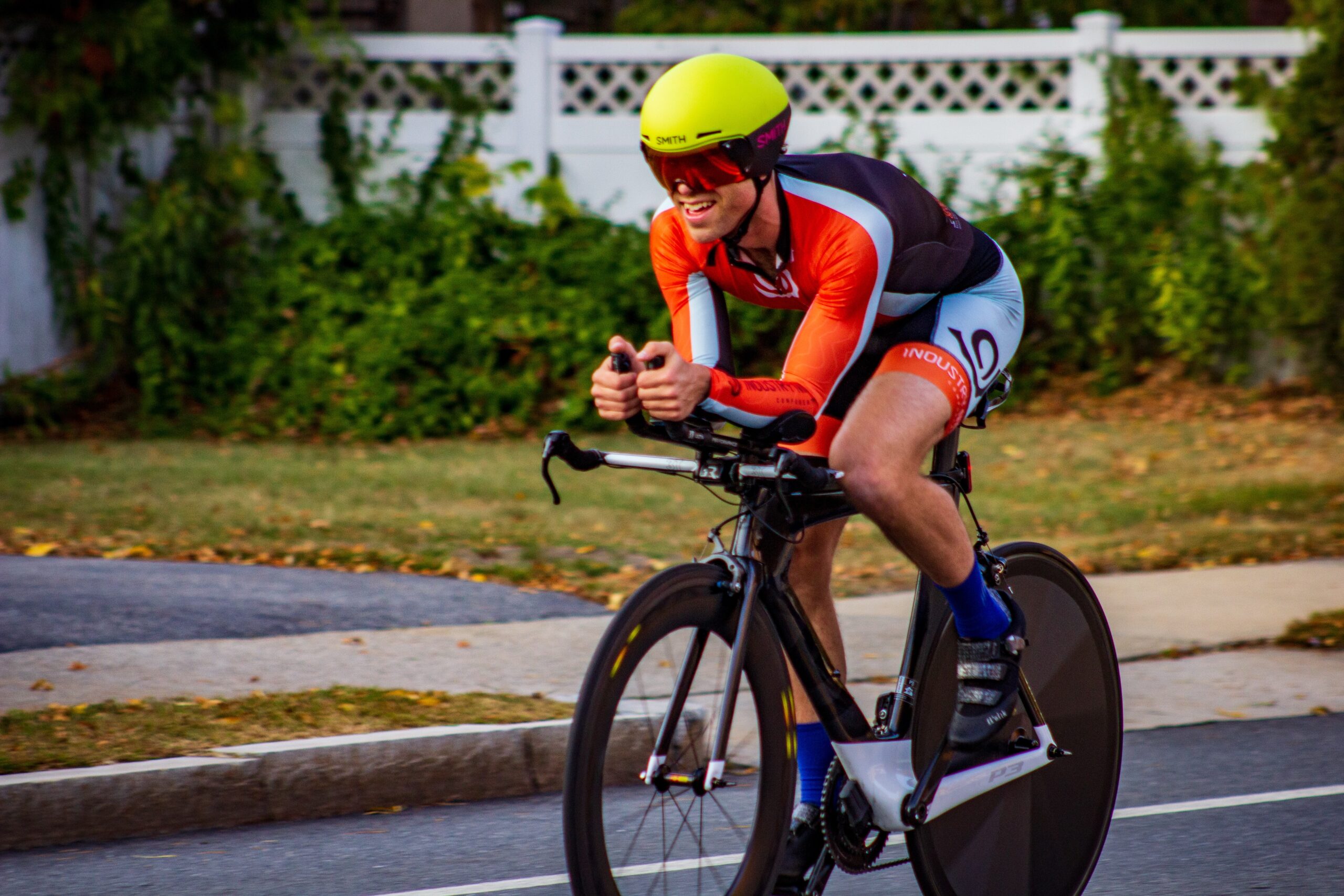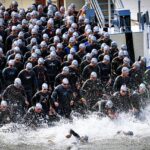Trust is the final piece of the triathlon puzzle when you are about to begin the swim. Yet, you have probably never thought of trust at all in our sport. Despite this neglect, trust is fundamental to your performing your best consistently in races. It is what brings everything you’ve done up to that point in your training and preparations and channel it into a mental and physical state of complete readiness.
What is Trust?
You can think of trust as a deep belief in your capabilities as a triathlete based on both your natural abilities and the preparations you’ve put in during conditioning, sport-specific training, mental training, bike fit and maintenance, and other areas that impact your triathlon efforts. This trust offers you several  essential benefits. First, you develop a fundamental faith that good things will happen for you in your races. Though there are no guarantees of success on any given day, this faith creates a confidence, optimism, and hope that, if you stay committed and give your best effort, you will achieve your race-day goals. Trust also helps you view races without doubt, worry, or fear because, with this trust, you don’t have any concerns worthy of those negative thoughts and emotions. The ultimate benefit of trust is that, when the start horn (or cannon, in the case of Ironmans) goes off, it allows you to turn your mind down to a minimum and to free your body to do what you’ve trained it to do.
essential benefits. First, you develop a fundamental faith that good things will happen for you in your races. Though there are no guarantees of success on any given day, this faith creates a confidence, optimism, and hope that, if you stay committed and give your best effort, you will achieve your race-day goals. Trust also helps you view races without doubt, worry, or fear because, with this trust, you don’t have any concerns worthy of those negative thoughts and emotions. The ultimate benefit of trust is that, when the start horn (or cannon, in the case of Ironmans) goes off, it allows you to turn your mind down to a minimum and to free your body to do what you’ve trained it to do.
How to Build Trust
Trust is developed progressively over time and based on an accumulation of many aspects of your triathlon life. It starts with a basic belief in yourself and all that you bring to your triathlon efforts: Your innate abilities, physical and mental capabilities, knowledge and understanding of our sport, and your passion and drive to be your best and achieve your triathlon goals.
 You must also have trust in your coach (if you have one). So much of what you come to believe about yourself as a triathlete comes from the person or people who coach you. If they express belief and trust in you, it’s much easier to you to trust yourself. Relatedly, you need to have trust in the training system that you use, whether it’s from a coach, an online platform, or from the many free and paid training programs that are available online. Your training system includes your physical conditioning program, swim-, bike, and run-specific training, nutrition, and, of course, your mental training program. For you to have a deep trust in your ability to perform your best when it matters most, you need to believe that the system you are using will lead you there.
You must also have trust in your coach (if you have one). So much of what you come to believe about yourself as a triathlete comes from the person or people who coach you. If they express belief and trust in you, it’s much easier to you to trust yourself. Relatedly, you need to have trust in the training system that you use, whether it’s from a coach, an online platform, or from the many free and paid training programs that are available online. Your training system includes your physical conditioning program, swim-, bike, and run-specific training, nutrition, and, of course, your mental training program. For you to have a deep trust in your ability to perform your best when it matters most, you need to believe that the system you are using will lead you there.
 Because triathlon is equipment intensive (mainly your bike), trust in your equipment is also vital. Without believing that your wetsuit and goggles, bike, and running shoes will enable you to do what you want to do in your races, you won’t have complete trust in yourself and, as a result, you will likely hold back from a full effort. Your equipment can impact your trust in several ways. First, you must believe that the equipment you use can allow you to perform your best. For example, if you don’t believe that your bike fit is right for you, he will probably worry whether you can generate maximum power, be efficient, and stay comfortable on the bike leg of your races. Second, you must trust that your equipment is optimally prepared so it will allow you to perform the way you want, for example, a well-oiled and adjusted bike. Third, trust is particularly challenging when your equipment has failed you in the past, for example, a flat tire on a bike. If you don’t believe that your bike can stand up to the demands you place on it, you may have a nagging apprehension in the back of your mind that it will fail you again, thus preventing you from trusting it and giving your fullest and most committed effort.
Because triathlon is equipment intensive (mainly your bike), trust in your equipment is also vital. Without believing that your wetsuit and goggles, bike, and running shoes will enable you to do what you want to do in your races, you won’t have complete trust in yourself and, as a result, you will likely hold back from a full effort. Your equipment can impact your trust in several ways. First, you must believe that the equipment you use can allow you to perform your best. For example, if you don’t believe that your bike fit is right for you, he will probably worry whether you can generate maximum power, be efficient, and stay comfortable on the bike leg of your races. Second, you must trust that your equipment is optimally prepared so it will allow you to perform the way you want, for example, a well-oiled and adjusted bike. Third, trust is particularly challenging when your equipment has failed you in the past, for example, a flat tire on a bike. If you don’t believe that your bike can stand up to the demands you place on it, you may have a nagging apprehension in the back of your mind that it will fail you again, thus preventing you from trusting it and giving your fullest and most committed effort.
 Perhaps the most important contributor to trust just before you compete is in all your preparations leading up to that “moment of truth.” So many different types of preparations go into your achieving that precise state of readiness that will lead to a great race: physical conditioning, event-specific technical and tactical training, race simulations, nutrition, sleep, equipment testing and preparation, mental training, developing a race plan, and doing your race routines. Just before you enter the water, if you can say, “I am as prepared as I can be to perform my best today,” then you will have placed trust as the final piece of the triathlon puzzle.
Perhaps the most important contributor to trust just before you compete is in all your preparations leading up to that “moment of truth.” So many different types of preparations go into your achieving that precise state of readiness that will lead to a great race: physical conditioning, event-specific technical and tactical training, race simulations, nutrition, sleep, equipment testing and preparation, mental training, developing a race plan, and doing your race routines. Just before you enter the water, if you can say, “I am as prepared as I can be to perform my best today,” then you will have placed trust as the final piece of the triathlon puzzle.
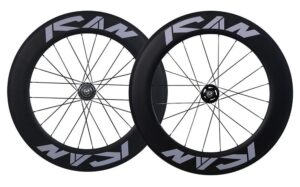 Do you want to take the next step in training your mind to perform your best in training and on race day? Here are five options for you:
Do you want to take the next step in training your mind to perform your best in training and on race day? Here are five options for you:
- Read my Triathlon blog.
- Listen to my Train Your Mind for Athletic Success
- Read my latest mental training book: Train Your Mind for Athletic Success: Mental Preparation to Achieve Your Sports Goals.
- Take a look at myonline mental training courses.
- Schedule a 1:1 session with me.

